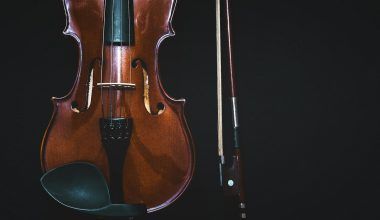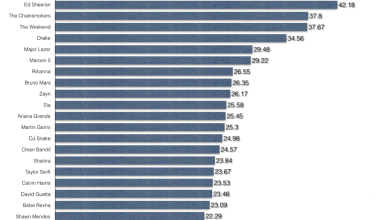usic is everywhere—in your favorite movie, the café down the street, and even in your head when you hum a tune. It’s not just a form of entertainment; it’s deeply tied to our feelings and thoughts. The psychology of music helps us understand how music affects our minds and emotions, why certain songs make us cry, and how it can even help us heal.
From ancient drum beats to today’s digital playlists, music has always played a big role in our lives. Whether it’s a wedding song that makes you smile or a lullaby that soothes a baby to sleep, music speaks to all of us in ways words often can’t.
Music and Emotions: Why Do Songs Make Us Feel?
Have you ever noticed how a happy song can instantly lift your mood or a sad song can make you teary-eyed? That’s because music is deeply connected to our emotions. When we hear a song, our brain releases dopamine, a chemical that makes us feel good.
Here’s how music affects our feelings:
- Fast songs make us feel energetic and excited.
- Slow, soft music can calm us down or even make us feel a bit sentimental.
- Melancholic music sometimes helps us process sadness in a comforting way.
Music also helps us connect with others. For example, love songs bring people together, while national anthems inspire unity. This emotional bond with music is why it’s used in therapy, celebrations, and even funerals.
Memory and Music: Songs That Take You Back
Have you ever heard an old song that brought back memories of a special moment? That’s because music is like a time machine for our brain. It’s strongly linked to memory. Even people with memory problems, like Alzheimer’s, can sometimes recall events when they hear certain songs.
Why does this happen?
- Music activates the hippocampus, the part of the brain responsible for memory.
- Songs act as “cues” that remind us of specific times or emotions.
For example, a wedding song might remind you of your big day, or a childhood rhyme might bring back school memories. Many people use music to relive happy moments or comfort themselves when they’re feeling low.
How Music Changes Behavior
Did you know that the music playing in a store can affect how much time you spend shopping? Or that upbeat songs in gyms motivate people to work out harder? Music has a big impact on how we behave without us even realizing it.
Here’s how different types of music influence our actions:
- Loud, fast beats make us move faster, which is why gyms play them.
- Soft, calming music in restaurants encourages people to stay longer and order more.
- Dramatic background music in movies helps set the mood and tells us how to feel during a scene.
Whether it’s energizing us to exercise or calming us after a stressful day, music has a way of shaping our actions.
The Science Behind Why We Love Music
Our brains are wired to respond to music. When you hear a song, several parts of your brain light up at once:
- The auditory cortex processes the sound.
- The limbic system connects the music to your emotions.
- The motor cortex helps you tap your feet or clap along.
Some people even experience a phenomenon called synesthesia, where they “see” music as colors or shapes. This unique connection between sound and sight shows how powerful music can be.
Music as Medicine: The Healing Power of Tunes
Music is more than just entertainment—it’s a tool for healing. uses songs and rhythms to help people improve their mental and physical health. It’s used for people of all ages, from children with special needs to elderly patients.
Benefits of music therapy include:
- Reducing stress and anxiety.
- Helping stroke patients regain motor skills.
- Improving communication skills in people with autism.
- Easing pain for those with chronic illnesses.
Listening to calming music can even lower your heart rate and blood pressure. That’s why many hospitals and therapy centers use music as part of their treatment plans.
How Different Cultures Experience Music
Music is a universal language, but every culture experiences it differently. In India, classical ragas are used to create moods, while African music often focuses on rhythm and storytelling. Western music, on the other hand, emphasizes harmony and melody.
Despite these differences, music connects us all. It’s a way to express joy, sorrow, love, and hope. Understanding how various cultures use music can teach us more about our shared humanity.
The Digital Revolution: How We Listen Today
With smartphones and streaming platforms, music has never been easier to access. But the way we consume music has changed how we connect with it. Today, algorithms recommend songs based on our preferences, and playlists are created for every mood and activity.
This convenience has benefits, but some people worry that we’re losing the deeper connection to music. Instead of listening to an entire album, we often skip from song to song. Still, the digital era has made music more global and diverse, allowing us to discover new genres and artists from around the world.
Fun Facts About Music and the Brain
- Earworms: That catchy song stuck in your head? It’s called an earworm, and it’s a sign that your brain is super active.
- Learning instruments: Playing music improves coordination and brain power.
- Babies and music: Even unborn babies can respond to music in the womb!
These little details show how much music is a part of who we are.
Why Music Brings Us Together
Think about festivals, weddings, or even national celebrations. Music is always there, bringing people closer. It helps us share emotions and create memories. Whether it’s singing in a group or dancing at a concert, music is a powerful way to connect with others.
What the Future Holds for Music and Psychology
The future of music is exciting! With technology like AI, new ways of creating and experiencing music are emerging. Scientists are also studying how brainwaves respond to music, which could lead to personalized therapies.
In the coming years, we might even see music used in more advanced ways to improve mental health and learning.
Conclusion: Music is Life
Music is more than just sound—it’s a part of life that touches our hearts and minds. The psychology of music shows us why it’s so powerful, from helping us remember happy times to soothing us when we’re stressed. So, the next time you hear a song you love, take a moment to appreciate how it’s working its magic on you.
Music has the power to heal, connect, and inspire. It’s a reminder that no matter where we come from or what language we speak, music brings us together. So keep listening, keep singing, and let music be your constant companion.
Related Articles:
For further reading, explore these related articles:
- Your Ultimate Guide to Fitness Workout Music for Boosting Energy and Fun
- Wireless Earbuds for Musicians: A Complete Guide to Elevate Your Sound Game
For additional resources on music marketing and distribution, visit DMT RECORDS PRIVATE LIMITED






